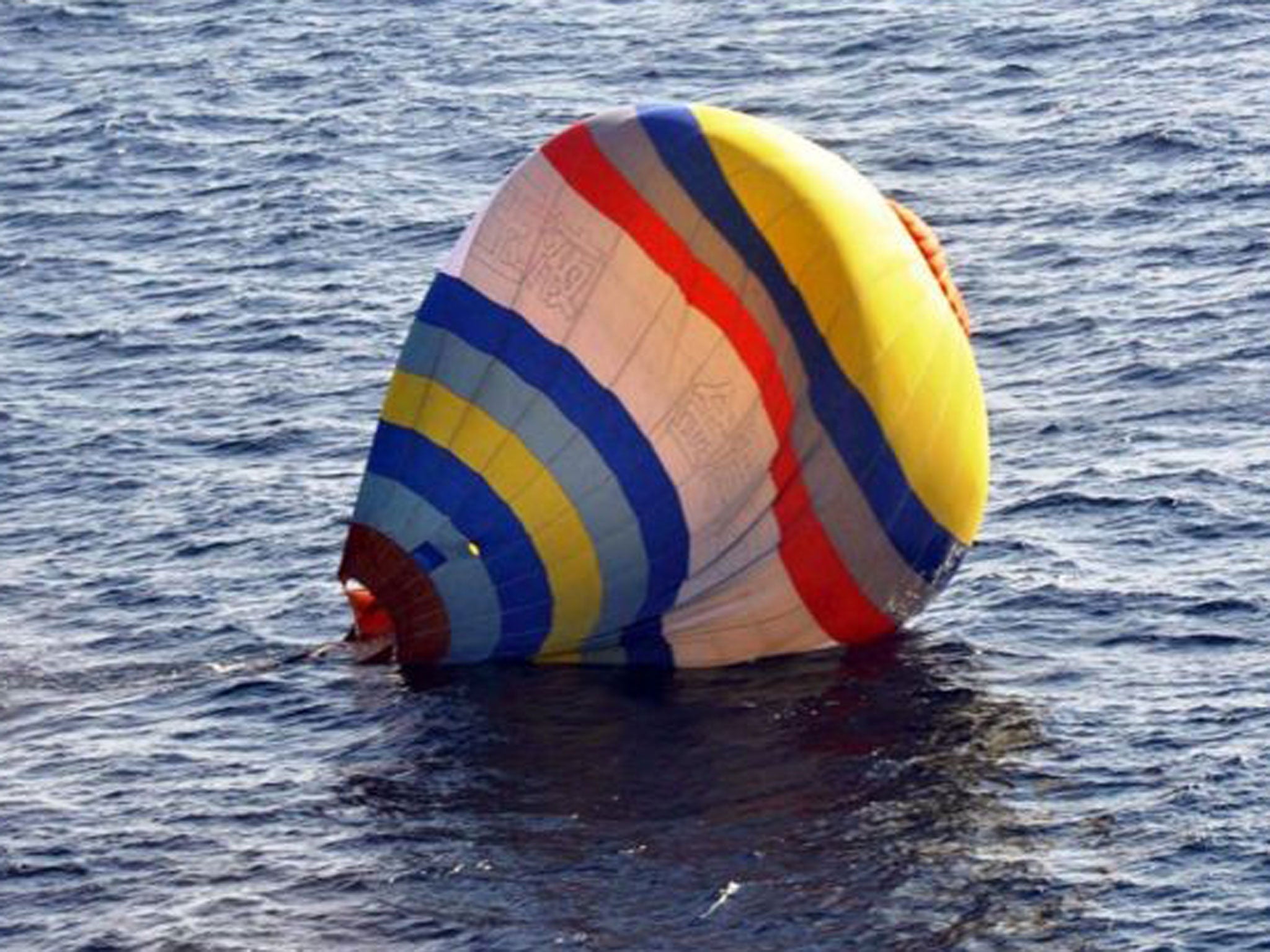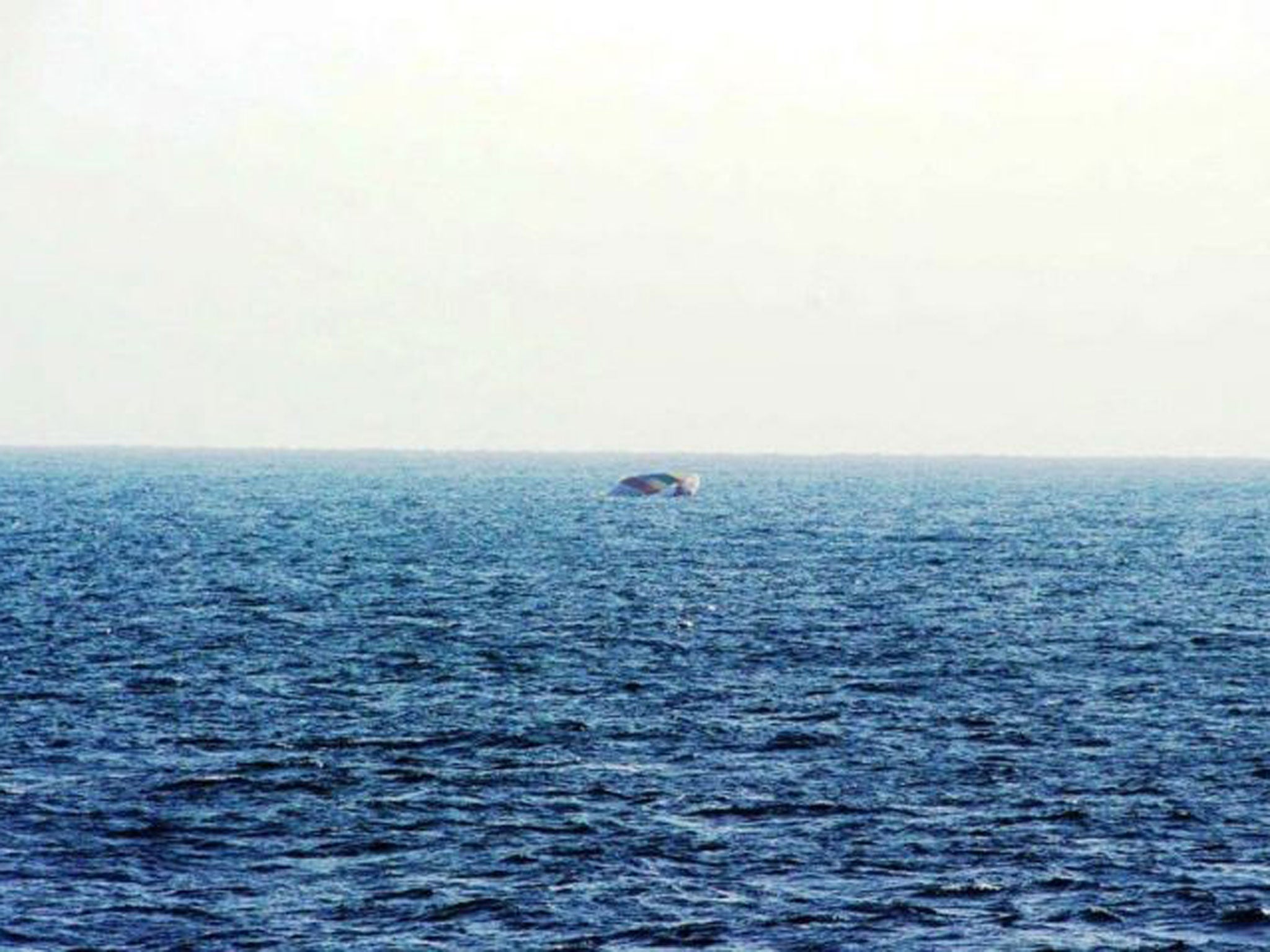China-Japan tensions: Chef crashes balloon near disputed islands
The islands have caused tension between the countries for some time

Your support helps us to tell the story
From reproductive rights to climate change to Big Tech, The Independent is on the ground when the story is developing. Whether it's investigating the financials of Elon Musk's pro-Trump PAC or producing our latest documentary, 'The A Word', which shines a light on the American women fighting for reproductive rights, we know how important it is to parse out the facts from the messaging.
At such a critical moment in US history, we need reporters on the ground. Your donation allows us to keep sending journalists to speak to both sides of the story.
The Independent is trusted by Americans across the entire political spectrum. And unlike many other quality news outlets, we choose not to lock Americans out of our reporting and analysis with paywalls. We believe quality journalism should be available to everyone, paid for by those who can afford it.
Your support makes all the difference.A "balloon enthusiast" has added a shade of farce to the tense territorial stand-off currently diverting attentions in China and Japan.
Xu Shuaijun, a 35-year-old Chinese chef, crash landed his hot air balloon near the disputed - and currently Japanese - islands in the East China Sea - called the Senkaku by Japan and Diaoyu by China.
Japan handed him over to a Chinese patrol vessel on Wednesday evening. Qin Gang, spokesman for the Chinese Foreign Ministry, described the man as a "balloon enthusiast", and confirmed he had been handed over to a Chinese vessel upon being rescued and was in good health.
The islands, around 70 miles north-east of Taiwan and slightly closer to the Chinese coast that Japan's, have caused rumbling tension between Asia's biggest powers for some time.
Both sides have been repeatedly scrambled fighter jets against perceived threats, raising fear that a miscalculation could lead to conflict, which in turn could draw in Japan's treaty ally, the United States.
Japanese Prime Minister Shinzo Abe fanned the flames in his New Year's message,reiterating his commitment to a stronger military and to revising the country's pacifist constitution.

He said: "Japan will play an even more proactive role than ever before for world peace and stability. We will fully defend the lives and assets of our nationals as well as our territory, territorial waters and territorial airspace in a resolute manner."
As often with the two near-neighbours, 20th Century history looms large. Abe's comments came after his strongly criticised visit to Yasukuni Shrine, where Japanese leaders convicted as war criminals by an Allied tribunal after the war are honoured along with those who died in battle.
Tension peaked in November last year with Beijing's announcement of an air-defence zone covering a large swathe of the East China Sea, including the disputed isles, demanding that all aircraft flying through the zone identify themselves to Chinese authorities and keep communications open.
Japan has urged China to rescind the decision and, along with the USA, refuses to recognise the zone.
Abe's announcement last month of more muscular defences and security policies and his reversal of years of declines in military spending have also angered China.
And on Wednesday China's first ever aircraft carrier completed its first sea trials.
Join our commenting forum
Join thought-provoking conversations, follow other Independent readers and see their replies
Comments